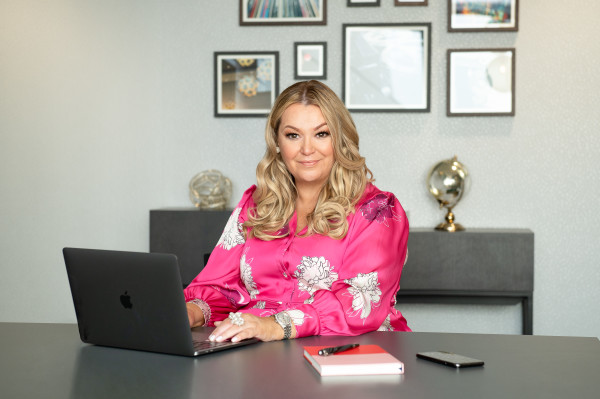

Authenticity, empathy and understanding are three of the vital benefits that strong diversity, equity and inclusion can bring to an organisation’s workforce.
Hayley North, chartered financial planner at Rose and North, explains why: "Clients want to talk to people they feel understand them and their needs and they need to feel safe to share very personal information with advisers.
"When they see an inclusive and diverse group of staff, they immediately appreciate that this is somewhere they will be welcomed and understood."
Taking diversity, equity and inclusion, or DE&I, seriously helps firms stay relevant and maximise their business potential.
DE&I ensures firms attract “a broad range of talent to the workforce and a broad range of clients to businesses because they feel seen, heard, understood, safe and valued”, North says. This, she adds, is “priceless”.
Bringing something different to the table
DE&I has other advantages. As well as exposing firms to more talent, it also provides different view points and different ways of solving problems, says Hanbury Wealth director Mandy Dale.
“In our industry, there are multiple ways to solve any problem. Every client is different, even if they look alike, their situation will never be completely the same.
"By having a rounded, diversified team to approach these problems, we will be able to provide the range of solutions that are needed for us to deliver our service in the best way."
This is something North agrees with: "We all think differently based on our own unique perspective and life experience. With diverse and inclusive workforces, we will encounter alternative ways of looking at common problems and creative solutions."
Joanna Streames, managing director at Velvet Mortgages, takes this idea further. She says DE&I creates “a space where ideas grow through the business, pulling on different skills from a more diverse workforce”.
Streames draws on the different strengths between the sexes as an example: “Women are often more naturally gifted with empathy and can, therefore, appeal to other women who have perhaps juggled careers and children, and look at things with those female clients from a different perspective perhaps to how men would when it comes to protecting their family”.
This lived experience builds empathy and this in turn fosters authenticity, which is crucial to a successful advice process.
Dale points to how important empathy is, especially as she says the financial advice process is “a very personal and vulnerable experience… you talk about your income, your expenditure, your assets, your liabilities, your ambitions, and in order to have the best possible experience and the most tailored response, you need to be completely honest. In order to be completely honest, you need to be completely comfortable.
“This is a world where people are more comfortable opening up in front of people who are like them. I personally am more likely to open up to a woman than a man, because they are likely to understand my issues and my insecurity.”
Streames adds: “You can reflect different attitudes and brainstorm in a company, building a wonderful culture where you can all harmonise to drive performance, ensuring everyone is heard, included and considered on their own needs and opinions.
Closing gaps
According to North, not embracing DE&I runs the risk of excluding huge chunks of the population, thereby limiting advice knowledge and experience and also limiting the impact on making the world a better place.
North says that “clients deserve to be advised by people with a variety of life experiences and ways of viewing the world and delight in working with people who truly empathise with their own challenges”.
There are other practical advantages to creating a DE&I-friendly culture.
For instance Streames points out that there are still many existing gaps in equality – representation gaps, but also pay gaps and pension gaps.
“I believe the only way to close these gaps is when we strive to embody DE&I so that those in these gaps currently will feel more comfortable to get the vital advice they need from their peers who, simply put, look like them, represent them, are them,” she says.
Another practical advantage is reducing employee turnover and the associated costs.
“To support and include your workforce truly will stop employee turnover, which will lead to better retention and profits,” says Streames.
North adds that recruitment and retainment practises are key. “Remember that most people who do not feel included or who are finding things tough might not tell you and will either just not apply for your job, leave their role or not approach you as a client or make excuses to go elsewhere.
"Considering how you can be a welcoming environment to all and seeing the advantages of this rather than focusing on how it might inconvenience you is the way forward.”
Regulation
Many advisers and managers feel DE&I is a regulatory imperative, as well as a business imperative.
For instance, regulation good because true DE&I creates healthier business cultures, according to North.
“Truly diverse, equitable and inclusive businesses lead to healthy business cultures, as well as making better businesses. Healthy cultures ensure that bad behaviours are discouraged and best practice is championed, all of which is a win-win for regulators,” she says.
North adds that “regulators also need to get their own houses in order to ensure they are setting good examples and factoring in the impact of a diverse workforce and client base on business needs.
"It is likely that many regulatory processes will need to also be adapted over time to take account of varied needs, for example tight reporting deadlines or onerous fees can disadvantage smaller firms and this negatively impacts the diversity of the advice population and services on offer.”
Regulation will lead to better outcomes for the workforce in the same way we want better outcomes for clients, and “we need that to start at home, as it were," says Streames.
"Everything we do within an organisation is reflected out to our clients and people we are serving so regulatory steps would help this."
It is clear that the world is now a diverse place and so businesses have to keep up with this.
To truly deliver inclusivity is not always easy and an open forum culture has to be in place with everyone open to listening to everyone's needs, views and truly including them in the company growth and day-to-day activities within the business.
The Financial Conduct Authority says that increased diversity and inclusion can result in "improved governance, decision-making and risk management within firms, a more innovative industry, and products and services better suited to the diverse needs of consumers."
An FCA spokesperson said: “While the industry has made some progress on diversity and inclusion, we want to work with firms to increase the pace of change. We will set out proposals for consultation later this year.”
Anita Boniface is a freelance journalist



